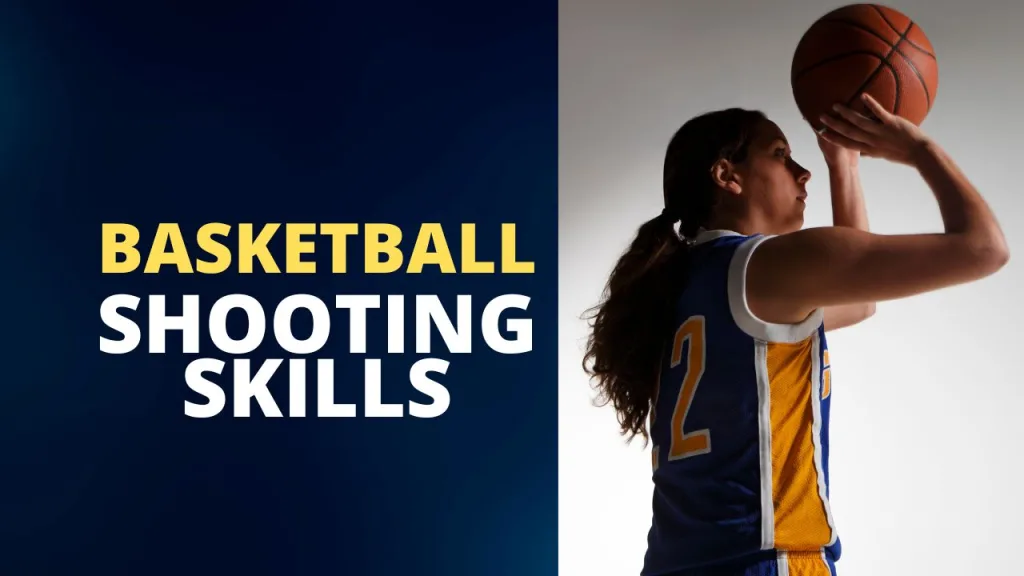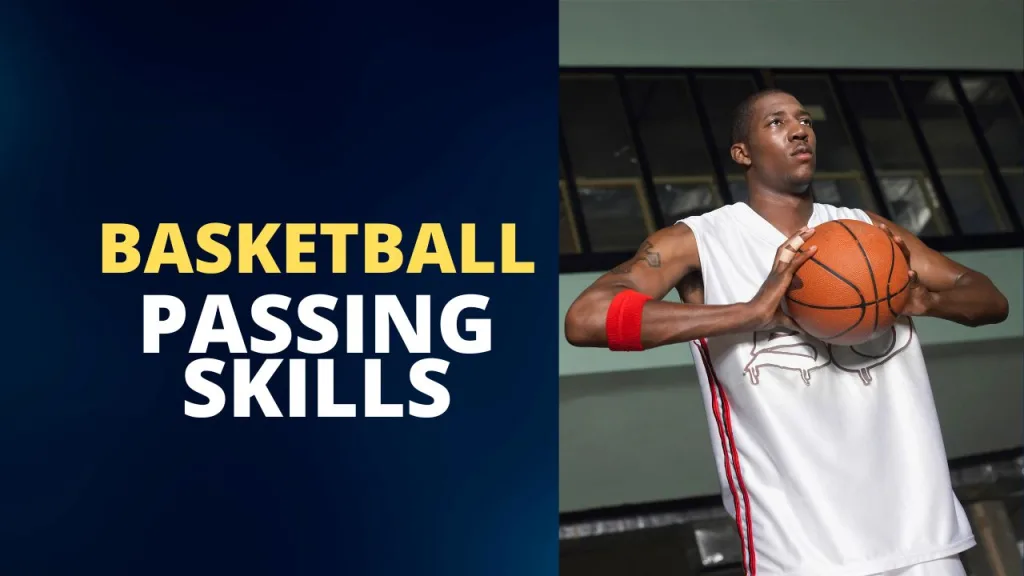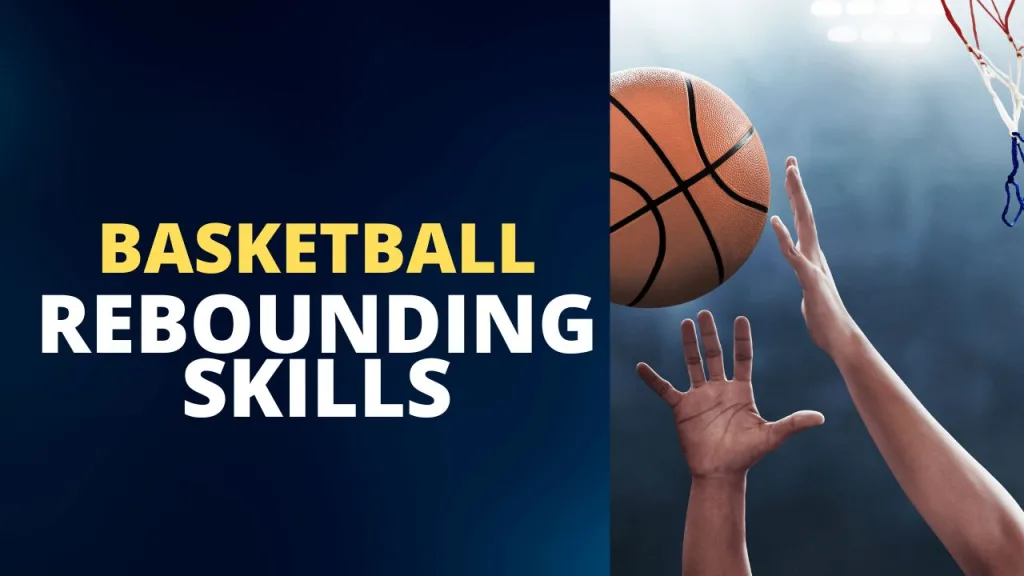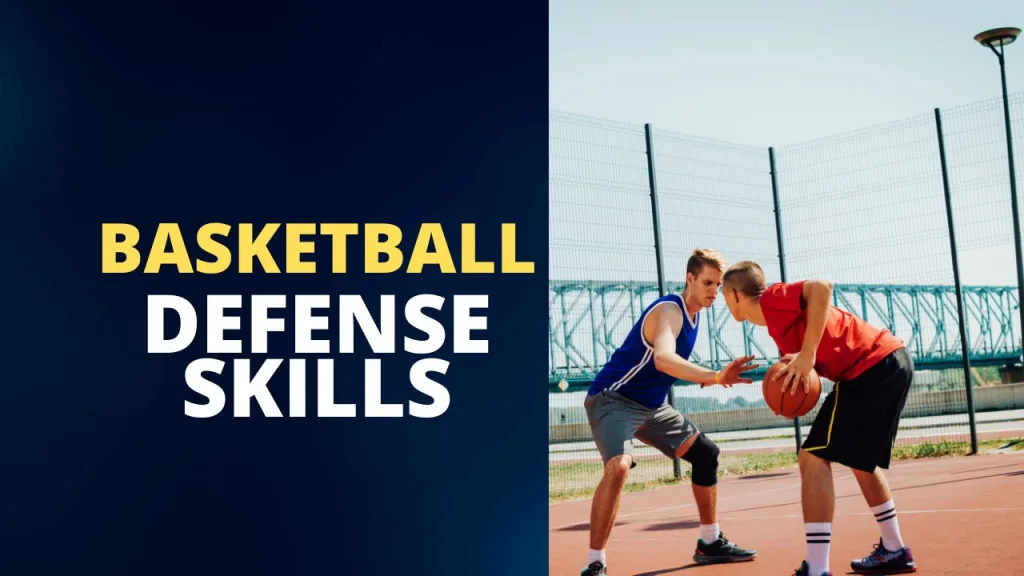This comprehensive guide to basketball skills and techniques covers various essential and advanced topics to improve gameplay. The article first introduces vital skills, including shooting, dribbling, passing, rebounding, defense, and footwork.

It then details the significant role of conditioning and physical training in basketball skill development, stressing the importance of strength, coordination, balance, speed, and agility.
Mental acuity and game IQ, vital for high-level gameplay, are also discussed, emphasizing the necessity of game awareness, focus, and experience.
The guide further explores special basketball techniques such as alley-oop, slam dunk, Euro step, pick and roll, give and go, and backdoor cut. It closes with an overview of popular practice drills and the impact of basketball rules on techniques and skills. The guide is essential for beginners and seasoned players seeking to enhance their basketball skills and understanding.
By the end of this guide, you’ll be well-equipped with the knowledge and understanding of basketball skills and techniques to enhance your performance on the court. So lace up your sneakers, and let’s dive into the riveting world of basketball!
What Are The Main Basketball Skills You Should Know?
Several basketball skills are essential to know, including:
- Shooting
- Dribbling
- Defense
- Rebounding
- Passing
- Defense
- Footwork
Other skills that can be helpful to learn to include offensive moves, layup and finishing techniques, agility, and various drills to improve these skills.
What Are Basketball Dribbling Skills?

Basketball dribbling skills are an essential part of the game. Dribbling is necessary to penetrate the hoop, move the ball across the court, get away from the defense, and find a good passing lane.
Different types of dribble include the control dribble, speed dribble, crossover dribble, in-and-out dribble, hesitation dribble, behind-the-back dribble, and through-the-legs dribble.
Several drills can be done to improve dribbling skills, such as ball slaps, straight arm finger taps, wraps around the ankle, wraps around the waist, and many more.
It is crucial to practice dribbling regularly to improve hand-eye coordination, timing, and ball control.
What Are Basketball Shooting Skills?

Basketball shooting is considered the most critical skill in the game. Shooting requires good form and technique to shoot consistently well.
Shooting skills can be improved by practicing regularly and developing proper shooting forms.
It is important to practice shooting from different positions on the court, such as free throws, layups, and three-pointers.
Additionally, it is essential to practice shooting under pressure, such as in game-like situations. Players can improve their shooting skills and become more effective on the court by practicing regularly and developing proper shooting forms.
What Are Basketball Passing Skills?

Passing is a fundamental basketball skill essential for a good offensive attack. Good passing helps players find an open man, find a good shooter, or get away from a defender.
There are several types of passes that players need to learn, including the two-hand chest pass, over-the-head pass, bounce pass, and skip pass.
Passing drills can help players control the ball and make passing decisions.
In addition to passing technique, players need to have good court vision and make quick decisions.
Players can improve their passing skills by practicing regularly, developing proper passing form, and becoming more effective on the court.
What Are Basketball Rebounding Skills?

Rebounding is a vital basketball skill that can give a team extra chances, free throw opportunities and frustrate the defense.
The rebounding skills are simple: prepare your hands, block out, and catch the ball.
To improve rebounding skills, players must have an attitude of crashing every possession, good balance and leverage, and anticipation.
Several drills can be done to improve rebounding skills, such as the three best rebounding basketball drills, which include the box out drill, the rebounding drill, and the outlet pass drill.
Players can improve their rebounding skills by practicing regularly, developing proper rebounding form, and becoming more effective on the court.
What Are Basketball Defensive Skills?

Basketball defensive skills are essential for an excellent defensive strategy. Defensive skills include on-ball defensive skills and techniques, such as pressuring the player with the ball, defending against dribble penetration, and containing a dribbler in an open court.
To excel in basketball, players must master individual defense skills, such as footwork, positioning, and communication.
There are several ways to play defense in basketball, including forcing tough shots, denying the ball, double-teaming, and using different defensive tactics such as closeout, drop coverage, hedge, help defense, and ice defense.
Players can improve their defensive skills by practicing regularly, developing proper defensive form, and becoming more effective on the court.
What Are Basketball Footwork Skills?

Basketball footwork skills are essential for players to position themselves better while playing offense or defense. Good footwork techniques can help players improve their agility, quickness, and balance on the court.
There are several basketball footwork fundamentals that players need to learn, including the jump stop, pivoting, triple threat, split step, changing direction, cutting, and defensive footwork.
To improve footwork skills, players can practice footwork drills that work on both footwork techniques and the quickness necessary to move around the court.
Players can improve their footwork skills by practicing regularly, developing proper footwork form, and becoming more effective on the court.
What Conditioning and Physical Training Is Needed For Basketball Skills Development?
Basketball conditioning and physical training are essential to becoming a great basketball player. Athletic development includes strength, conditioning, coordination, balance, speed, and agility.
To effectively be physically and skillfully prepared to excel in basketball, players need to take a marriage of the two disciplines.
Conditioning drills are a great way to build the strength and stamina to play great basketball.
Both skill development and basketball conditioning aim to create a particular practice for the competition.
Physical workouts increase muscular, respiratory, and cardiovascular capabilities and improve memory, problem-solving, and decision-making skills.
Players can improve their basketball skills and become more effective on the court by practicing regularly and developing proper conditioning and physical training.
What Mental Skills and Game IQ Is Needed For Basketball Skills Development?
Basketball skills development requires physical training, mental skills, and game IQ. Technical skills such as passing, dribbling, shooting, and game awareness or understanding are essential for developing basketball IQ.
Players must understand all the basic skills and be willing to use them at any time, such as shooting, passing, ball handling, and defense.
Players need to build their skills and spend more time playing the game to develop a high basketball IQ.
Game awareness, focus, and experience are essential for executing high-IQ basketball plays.
Players can improve their basketball skills and become more effective on the court by practicing regularly and developing proper mental skills and game IQ.
What Are Some Of The Special Basketball Techniques?

What Is An Alley-Oop?
An alley-oop in basketball is an offensive play in which one player passes the ball near the basket to a teammate who jumps, catches the ball in mid-air, and dunks or lays it in before touching the ground.
The term “alley-oop” is derived from the French term allez hop! the cry of a circus acrobat about to leap.
The alley-oop combines teamwork, pinpoint passing, timing, and finishing. It is a high-flying, exciting play requiring good communication and team coordination.
The alley-oop has a rich history in basketball, with some players beginning to grab balls in mid-air and then dunking in the 1950s.
Today, the alley-oop is a standard play in basketball and is often seen in highlight reels and games.
What Is A Slam Dunk?
A slam dunk is a type of basketball shot performed when a player jumps in the air, controls the ball above the horizontal plane of the rim, and scores by throwing the ball directly through the basket with one or both hands above the rim.
The slam dunk is a high-percentage shot and a crowd-pleaser, making it a popular move in basketball. It is a simple maneuver that involves delivering the ball through the basket’s rim, or cylinder, by one hand or by two.
The slam dunk is often showcased in contests like the NBA Slam Dunk Contest held during the annual NBA All-Star Weekend.
Because the ball is never released into the air, it dramatically reduces the ability of a defender to block the shot.
What Is A Euro Step?
The Euro step is a basketball move in which an offensive player picks up their dribble, takes a step in one direction, and then quickly takes another step. It is intended to allow the offensive player to evade a defender and attack the basket.
The Euro step is a crafty and exotic move introduced in the NBA over two decades ago to “plant one way, take one long step at full speed the other way, avoid contact, and sneak around the defender for an easy layup.”
The move is often used when a player drives to the hoop, and it can be especially effective when a shorter guard takes on a taller forward or center.
While the Euro step was used in the NBA before 2009, it became an official move.
What Are The Most Popular Basketball Practice Drills?
Coaches and players can use many popular basketball practice drills to improve their skills. These drills include shooting drills such as form shooting, Ray Allen shooting drill, and Kevin Durant shooting workout and drills.
Passing drills can help players control the ball and make passing decisions.
Ball handling, dribbling, rebounding, and defense drills are also popular.
Some popular basketball practice drills include the Bulldog Drill, Terminator Drill, 3-Man Weave Drill, Knockout Drill, Loose Ball Drill, and many more.
By practicing regularly and using a variety of drills, players can improve their basketball skills and become more effective on the court.
What Are Some Of The Special Basketball Techniques?
What Is A Pick And Roll In Basketball?
The pick and roll (also called a ball screen or screen and roll) is an offensive play in basketball in which a player sets a screen (pick) for a teammate handling the ball and then moves toward the basket (rolls) to receive a pass.
The pick and roll is one of the most commonly used offensive techniques in the NBA today and is considered the most deadly offensive action in basketball.
The play came into vogue in the 1990s and has developed into a versatile and effective offensive weapon.
The pick and pop is a derivative of the classic pick and roll. The player setting the pick moves to an open court area to receive a pass from the ballhandler for a jump shot.
The pick-and-roll is usually used by a guard handling the ball and a taller or bigger player, either the forward or center, setting the pick.
Players can create more manageable ways to score by mastering the pick and roll and becoming more effective on the court.
What Is A Give And Go In Basketball?
A give and go is an essential offensive play in basketball in which a player passes (gives) to a teammate and cuts (goes) to the basket, looking for a return pass to score.
The give and go is a fundamental play that many players learn when beginning to play basketball. It is a simple yet effective play that requires good communication and timing between teammates. The give and go can be used by youth basketball teams of all ages and is an essential play for offensive basketball players to master.
The give and go can also be used in more advanced offensive strategies, such as the Give & Go Spread Offense, which keeps the ball in the hands and control of the team’s two best ball handlers.
What Is A Backdoor Cut In Basketball?
A backdoor cut in basketball is an offensive maneuver in which a player without the ball moves away from the basket and brings along their defender, only to cut back towards the basket to receive a pass and score.
The backdoor cut is a type of maneuver that an offensive player uses to break free from the defender and get close to the hoop.
It is used when the defender is overplaying the passing lane. The offensive player can use the defender’s momentum against them to get open for a pass.
The back cut can be a great tool to help relieve pressure on the defense, get easy baskets, and help keep the defense honest.
Can Basketball Skills Training Improve My Game?
Yes, basketball skills training can improve your game. Basketball requires motor skills such as shooting, passing, and dribbling, and maintaining a strong body can help you perform these movements with greater ease.
Basketball skill training can help players develop a range of competencies to become more skilled in rebounding and defensive moves.
Basketball training can also improve muscular endurance, build healthy bones, improve balance and coordination, and develop fundamental movement skills.
Practical basketball conditioning can also help players become physically and skillfully prepared to excel in basketball.
Athletic development, including strength, conditioning, coordination, balance, speed, and agility, is essential to becoming a great basketball player.
Players can improve their basketball skills and become more effective on the court by practicing regularly and using various training methods.
How Do Basketball Skills Trainers Help With Progression?
Basketball skills trainers can help with progression by providing customized training tailored to the player’s needs.
Trainers can help players develop a range of competencies to become more skilled in rebounding and defensive moves and improve their strength, conditioning, coordination, balance, speed, and agility.
Trainers can also help players improve their basketball IQ by teaching them basic movements, spacing, and understanding their team’s systems and what their coach wants them to do.
By working with a trainer, players can receive personalized feedback and guidance that can help them improve their skills and become more effective on the court. Trainers can also track progress and ensure growth in all areas athletically.
How Do Basketball Rules Impact Techniques And Skills?
Basketball rules can impact techniques and skills in several ways. Rule modifications can affect basketball and stimulate players’ skills and technique development.
For example, rule changes by the National Basketball Association can impact pace, scoring, physicality, and other aspects of the game.
In basketball skill training, it is essential to consider the game’s rules when teaching players specific techniques and moves.
By understanding the impact of rules on the game, players and coaches can adjust their strategies and training methods to optimize their performance on the court. Rule modifications in basketball are used to develop the sport. FIBA changes the basketball regulations periodically, constantly searching for a more attractive game.
Conclusion
Basketball is a dynamic and exhilarating sport that requires a blend of physical abilities, mental acuity, and technical skills. From the fundamentals of shooting, dribbling, passing, and defense to the complexities of advanced maneuvers like the Euro step, alley-oop, or pick and roll, each aspect of the game contributes to a player’s overall effectiveness on the court.
Regular practice, strategic conditioning, and a deep understanding of the game’s rules and nuances can significantly enhance performance and progression in basketball.
Whether you’re a budding enthusiast or an experienced player, embracing these techniques and skills can help unlock your full potential on the court.
Remember, mastery is a continuous process of learning, training, and refining your skills. So, keep practicing, stay motivated, and enjoy the beautiful basketball game!